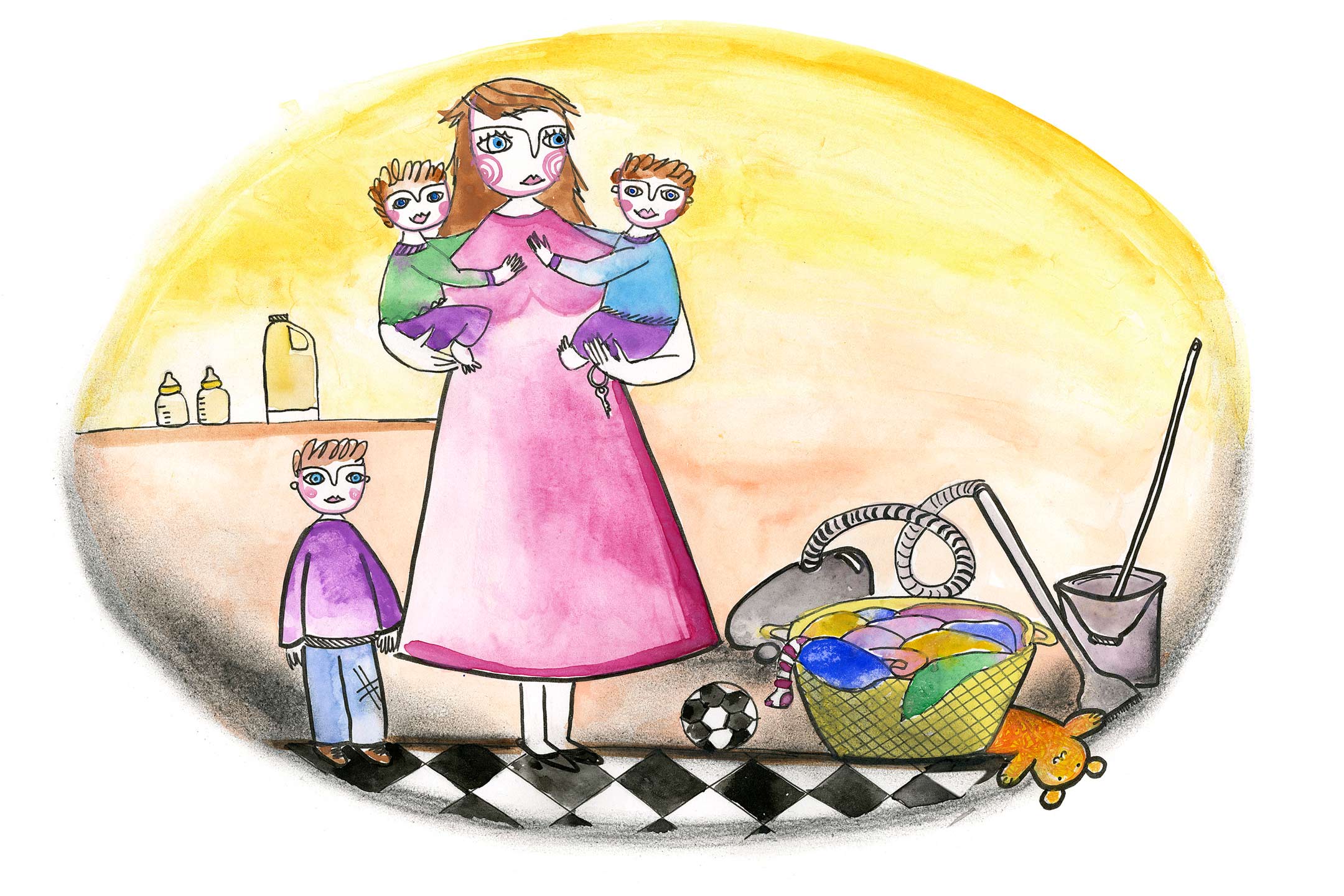
20 Oct Mother Or Martyr?
Diane Johnson comes to understand that asking for a little help from our friends is not a sign of failure.
While raising toddler twins and a primary-school age child, all boys, I would often hear comments that made me cringe. “My mother is coming for the next three weeks to help with the kids,” said my neighbour who was due to have her second child. “My sister stayed with me to potty-train my son,” said a lady I met at the shops. “Our friends lined up to deliver dinners our first week home,” said a woman in my twins group. Each time I would respond, “Oh, that’s nice,” but I did not mean it. I said it only to be polite.
How could their parents, siblings and friends always be available to help with babysitting, cleaning, delivering dinners and running errands while the weary parents rested? And where were my helpers hiding out?
I knew where my helpers were: my husband was working long hours and drove for most of the day, so getting up in the middle of the night was not an option for him (at least, not if we wanted him to be safe on the road). My family did not live in the area and due to work obligations, their taking time off to help me was not feasible. My in-laws lived in the area, but again, work obligations kept the help at bay. My friends had jobs and families of their own to attend to. Needless to say, the first few months were a fog thicker than pea soup.
I joined a local group for families with twins, assuming I would find resources for help. I bopped over to my first meeting, expecting a few consoling hugs or offers of dinner deliveries (my family had not had a decent dinner since the day we brought the twins home). Instead, I walked into a meeting where women looked polished, bright-eyed and bushy-tailed. I sat through that meeting feeling dejected. How could these women look so together and be so coherent? I was in pants pulled from the growing laundry pile, had hair that had not seen the shower in two days and a face that looked much older than my 29 years. And coherent, I was not.
I would later learn that the majority of the women had help, and lots of it. One had a full-time nanny. Many had mothers who would come over for weeks at a time to help with everyday tasks. Still others had friends who would bring dinners or watch the tots while the mothers slept or ran errands.
I was left to fend for myself. There were days when I was proud that I did not need help. I felt like a warrior, as opposed to someone who was weak and reliant on others to get through her days. But I was paying the price. I was depressed. Going out seemed difficult. A trip to the shop for milk, which usually took 20 minutes, now took hours. The process of corralling clean, fed children into the car and entering the shop, where I would be bombarded with questions on twins (while my six-year-old son was ignored by the inquisitive people), brought me to tears.
That was when the anger took hold. Whenever anyone spoke of getting a babysitter or having family or friends over to help with their one and only child, I seethed. I hated hearing how their mother came over and let them rest, or how their friend picked up milk for them on her way home. I was frustrated. I wanted help. The exhaustion of day-to-day tasks and lack of sleep left me less than joyful.
Over the years I have been through two phases: one of jealousy towards those who had help, and one of smugness that I did it without such help. As my kids grew older, and I was able to get out and enjoy a few moments to myself, my mind began to clear. I began to realise that the lack of help was partly my fault. I did not want to intrude on or burden anyone by asking for help. I also felt I would be failing as a parent if I had to ask for help. I now know that I was wrong. By asking for help I would not have been failing as a parent. I would have been a better parent for recognising that there is nothing wrong with receiving help.
The other night, my husband and I were visiting some friends and their three-week-old baby. I asked my friend what she would be doing when she returned to work. “My mother will be staying with us during the week to babysit,” said my friend. I smiled and told her how wonderful it is that she has family available to help. And I honestly meant it.
Illustration by Madeleine Stamer

